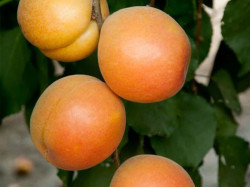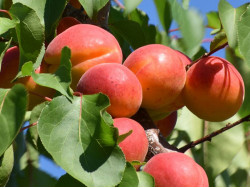Brand: Tutifruti
Model: Prunus armeniaca 3
Odroda COMPACTA , patrí medzi nové odrody marhúľ, jej pôvod nájdeme v USA . Vznikla krížením odrôd Moongold x NJA20. Je zaujímavá pre svoj kompaktný stĺpový vzrast, preto sa hodí do malých záhrad, je vhodné ju pestovať aj vo väčšej nádobe na balkóne alebo terase.Strom marhule COMPACTA ras..
- Výška pri predaji: 140cm
- Kontajner: 5l
- Podpník: Rakowiecka
- Predávame ako: 2 ročný
28,00€
Model: Prunus armeniaca 13
Marhuľa HARLAYNE pochádza z Kanady. Je to kvalitná marhuľa odolná voči mrazu a šárke. Vhodná na pestovanie v okrajových oblastiach.Strom marhule HARLAYNE rastie zdravo, stredne silno až silno. Koruna je rozložitá.Marhuľa HARLAYNE kvitne na jar, zvyčajne v apríli/máji. Presný čas kvitnutia môže však ..
- Výška pri predaji: 160cm
- Kontajner: 5L
- Podpník: Myrobalan
- Predávame ako: 2 ročný
24,00€
Zobrazené 1 až 2 z 2 (1 stránok)


